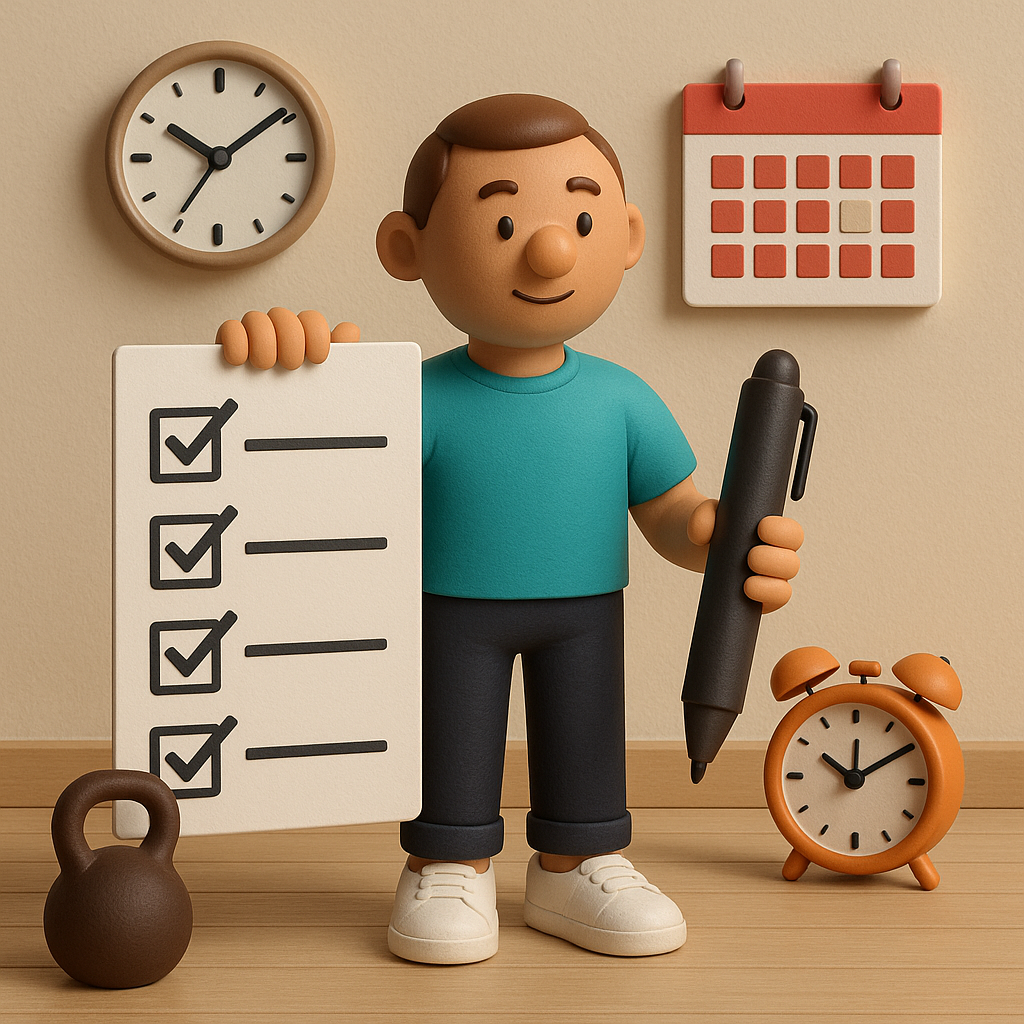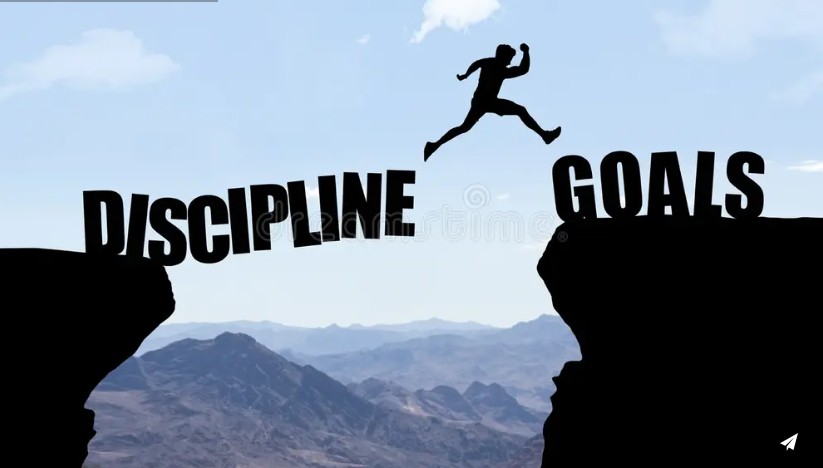How to Be Disciplined Even If You’ve Failed 100 Times Before !!!!!
Why You Struggle with Self-Discipline (and How to Fix It Without Burning Out)
Let’s Talk About the Real Problem
How many times have you said to yourself:
“Starting tomorrow, I’ll wake up early.”
“I’ll finally stick to my gym plan.”
“No more Instagram during work hours!”
But the next morning hits snooze. The gym feels far. And your phone is suddenly your best friend again.
You’re not lazy. You’re not broken. You just don’t know how to be disciplined—yet.
Let’s face it—discipline is hard. In a world of instant gratification, endless distractions, and a million to-do lists, staying focused and consistent feels like climbing a mountain barefoot.

But here’s the truth you need to hear:
You don’t need more motivation. You need a system.
This blog is for you—if you’ve ever struggled with staying consistent, finishing what you start, or showing up every day. Based on the practical strategies from the book “How to Be Disciplined”, we’re going to explore how you can build discipline like a muscle—and actually enjoy the process.
Why Motivation Is Not Enough
Most people rely on motivation to start something new. But studies show motivation is highly unreliable.
According to a 2018 study published in the Journal of Behavioral Medicine, motivation spikes temporarily after exposure to inspiring content—but it fades within 48 hours if not supported by a structured plan.
Think about it. You watch a motivational video on YouTube, feel pumped, and start running the next day. But by Day 3, you’re tired, your body hurts, and your mind says, “Let’s skip it.”
Motivation is a feeling—and feelings fluctuate.
Discipline, on the other hand, is a skill—you can build it, practice it, and strengthen it over time.
Discipline Is a System, Not a Trait
If you believe that some people are just “naturally disciplined,” it’s time to challenge that myth.
In the book “How to Be Disciplined,” the author explains that discipline is not a personality trait. It’s not about being perfect. It’s about having systems in place that make success easier than failure.
Here’s an example:
If your goal is to work out every morning, your system might include:
- Laying out your workout clothes the night before
- Setting your alarm across the room
- Having a pre-written workout plan ready
When you create a system, you’re not forcing yourself to make the same decisions every day—you’ve already made them.
🔑 Key takeaway:
Stop depending on willpower. Start depending on systems.
Start with Tiny Wins
One of the most powerful insights from the book is that discipline starts with small, non-negotiable wins.
The author recommends what psychologists call the “Minimum Viable Habit”—the smallest possible version of your desired habit that feels almost too easy.
Here’s how you can apply it:
- Want to write every day? Start with just 5 minutes.
- Want to start meditating? Begin with 2 minutes of deep breathing.
- Want to read more? Read 1 page after brushing your teeth.
These tiny actions help you build momentum and create a sense of success. According to Stanford professor BJ Fogg, small habits compound faster than big ones that fail to stick.
💡 Pro Tip:
Your goal is not to do a lot at once. Your goal is to show up every day.
Redesign Your Environment
Most people blame themselves when they fail to stay disciplined. But often, it’s not about you—it’s about your environment.
Think about it:
Would you eat fewer chips if they weren’t in your house?
Would you study better if your phone wasn’t buzzing every 2 minutes?
James Clear, author of Atomic Habits, points out that “Environment is the invisible hand that shapes human behavior.”
Here are some things you can do today:
- Delete time-wasting apps or at least move them to a hidden folder
- Use website blockers like Cold Turkey or Freedom during work hours
- Keep healthy food in sight, junk food out of reach
- Leave your journal on your pillow so you remember to write before bed
🔧 The easier you make a good habit, the more likely it is to stick.
Don’t Fear Failure—Use It
What happens when you miss a day?
Most people fall into the guilt spiral:
“I missed one workout. I’m a failure. Why even try?”
But the author reminds us—missing once is a mistake, missing twice becomes a habit.
Psychologists call this the “what-the-hell effect”—when a small slip makes you give up entirely. But successful people bounce back fast.
Here’s a mindset shift:
Instead of asking, “Why did I fail?”
Ask, “How fast can I recover?”
💪 Pro Tip:
Keep a “bounce-back plan.” If you miss your workout, go for a 15-minute walk instead. If you eat junk, drink 2 glasses of water right after.
Shift Your Identity First
Here’s something most people don’t realize:
You don’t become disciplined by changing your habits.
You become disciplined by changing your identity.
If you constantly say:
- “I’m so lazy.”
- “I never finish anything.”
- “I’m not a morning person.”
Your brain believes you.
Instead, say:
- “I’m the kind of person who shows up.”
- “I finish what I start.”
- “I value consistency.”
It may feel weird at first, but neuroscience proves that self-affirmation strengthens the brain’s belief system.
🧠 Your brain is always listening to what you say about yourself. Make it positive.
Make Discipline Fun (Yes, It’s Possible)
Discipline doesn’t mean you live like a robot or become a boring person. In fact, disciplined people experience more freedom—more time, more energy, more confidence.
So how do you make it enjoyable?
- Use gamification apps like Habitica
- Track your streaks on a calendar
- Reward yourself for consistency
- Join communities or challenges with friends
Think of discipline as a game. And every day, your mission is to score a small win.
Conclusion: You Are One Discipline Away from a New Life
Let’s wrap it up with a hard truth and a hopeful message:
If you’ve been struggling with self-discipline for years, it’s not your fault.
But it is your responsibility now.
You don’t need to fix your whole life overnight.
You just need to commit to one small action, consistently.
Start with 2 minutes. Build a system. Change your environment. Speak kindly to yourself. And most importantly—don’t give up when it gets hard. That’s when you grow.
If there’s one thing the book “How to Be Disciplined” teaches us, it’s this:
Discipline isn’t punishment. It’s the path to personal freedom.
discipline kaise banaye, how to be disciplined in life, how to build habits, discipline vs motivation, motivational video in hinglish, book summary hindi, discipline routine, self control kaise laye, habits for success, productivity hacks, best self improvement books, hindi book summary, motivation ka sach, self discipline tips, life changing habits, procrastination ka solution, Positive thingking, positive mindset, thought process. Thinking.
